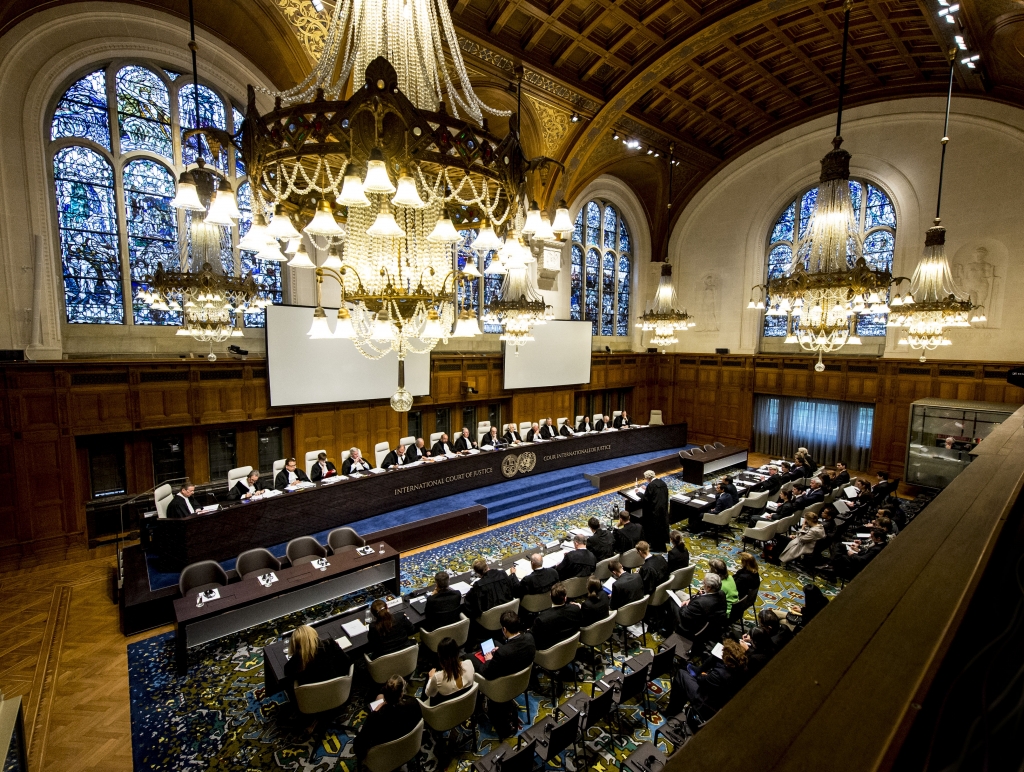The International Court of Justice (ICJ), established in 1945, serves as the principal judicial organ of the United Nations. It is headquartered in The Hague, Netherlands, and its primary purpose is to adjudicate disputes between states and provide advisory opinions on legal questions referred to it by the United Nations General Assembly or other agencies. Understanding the statute of the ICJ offers critical insights into its structure and jurisdiction and invites reflection from a Christian perspective on justice, peace, and the rule of law.
At its core, the ICJ’s statute is a foundational document that articulates the framework within which the Court operates. It delineates the jurisdictional parameters of the Court, defines its structure, and governs the legal processes it follows. The statute comprises a preamble and 70 articles, providing a comprehensive legal blueprint that outlines how the ICJ engages with issues of international law. The language of the statute reflects the complexities of international relations while simultaneously emphasizing the need for a resolute adherence to justice.
Structurally, the ICJ consists of 15 judges, elected for nine-year terms by the United Nations General Assembly and the Security Council. This structure ensures a diverse representation of different legal traditions and cultures, reflecting the pluralistic nature of the world community. Judges must possess the qualifications required in their respective countries for appointing to the highest judicial office. Their independence and impartiality are paramount, ensuring that the Court’s deliberations and judgments are free from external influence. From a Christian perspective, this embodiment of impartiality resonates with biblical principles of justice, as found in passages such as Proverbs 21:3, which highlights the importance of justice and righteousness.
The jurisdiction of the ICJ can be divided into two primary types: contentious jurisdiction and advisory jurisdiction. Contentious jurisdiction involves cases brought before the Court where states are in dispute. This form of jurisdiction requires the consent of the parties involved, reflecting a fundamental principle of international law that states are sovereign entities that must agree to submit their disputes to the Court. In this light, the notion of consent underscores the role of free will, an important theme in Christian theology, wherein individuals and nations exercise their autonomy while seeking reconciliation through lawful means.
Advisory jurisdiction allows the ICJ to provide non-binding opinions on legal questions referred by UN organs and specialized agencies. While not legally binding, advisory opinions hold significant moral authority and foster an understanding of international law, addressing issues that may affect global peace and security. Christians are called to seek wisdom and counsel, as illustrated in James 1:5, where seeking divine guidance is extolled. In this vein, the ICJ’s advisory role can be seen as a reflection of humanity’s quest for discernment in complex legal matters, aligning with a broader spiritual mandate toward justice and mercy.
The ICJ also engages with a rich tapestry of legal instruments and treaties that shape its jurisprudence. Key sources of international law, as outlined in Article 38 of the ICJ Statute, include international conventions, customary international law, general principles of law recognized by civilized nations, and judicial decisions and scholarly writings. This multifaceted approach resonates with the Christian understanding of truth—where valid legal arguments should align with ethical standards and moral principles, allowing for a holistic pursuit of justice.
The relevance of the ICJ extends beyond legal adjudication; it serves as an essential forum for dialogue and the peaceful resolution of conflicts between nations. In an increasingly polarized world, the ICJ’s efforts to mediate issues such as territorial disputes, resource conflicts, and violations of human rights contribute to global stability. Within a Christian framework, the pursuit of peace is a divine imperative, as suggested in Matthew 5:9: “Blessed are the peacemakers, for they shall be called sons of God.” The ICJ embodies this commitment, channeling the principles of reconciliation and harmony that are central to Christian teaching.
Moreover, the ICJ’s engagement with issues of international law and justice resonates with the Christian call to advocate for the marginalized and oppressed. As the Court deliberates on cases involving human rights abuses, environmental concerns, or the sovereignty of nations, it aligns itself with the Gospel’s preferential option for the poor, as articulated in Matthew 25:40, where Jesus emphasizes the importance of caring for “the least of these.” By delivering justice, the ICJ not only upholds the rule of law but also seeks to empower those who have historically been voiceless in the international arena.
In conclusion, the statute of the International Court of Justice serves as a critical framework for understanding international law and justice. Its structure and jurisdiction reflect a commitment to impartiality, harmony, and the rule of law. From a Christian perspective, the pursuits of the ICJ resonate deeply with the biblical imperatives of justice, reconciliation, and peacemaking. As humanity continues to grapple with complex global challenges, the ICJ stands as a testament to the potential for constructive dialogue and the unwavering pursuit of justice, encouraging nations to engage with empathy, wisdom, and a commitment to the common good.



